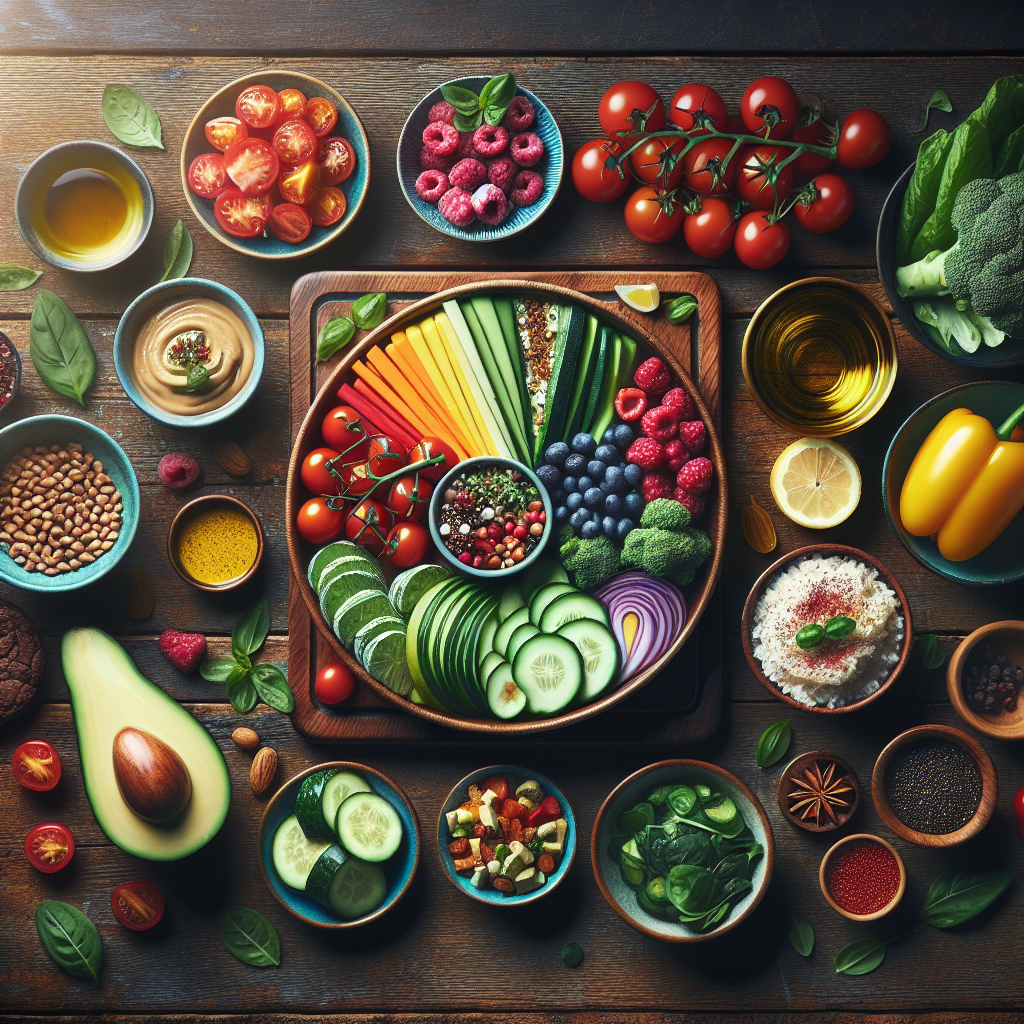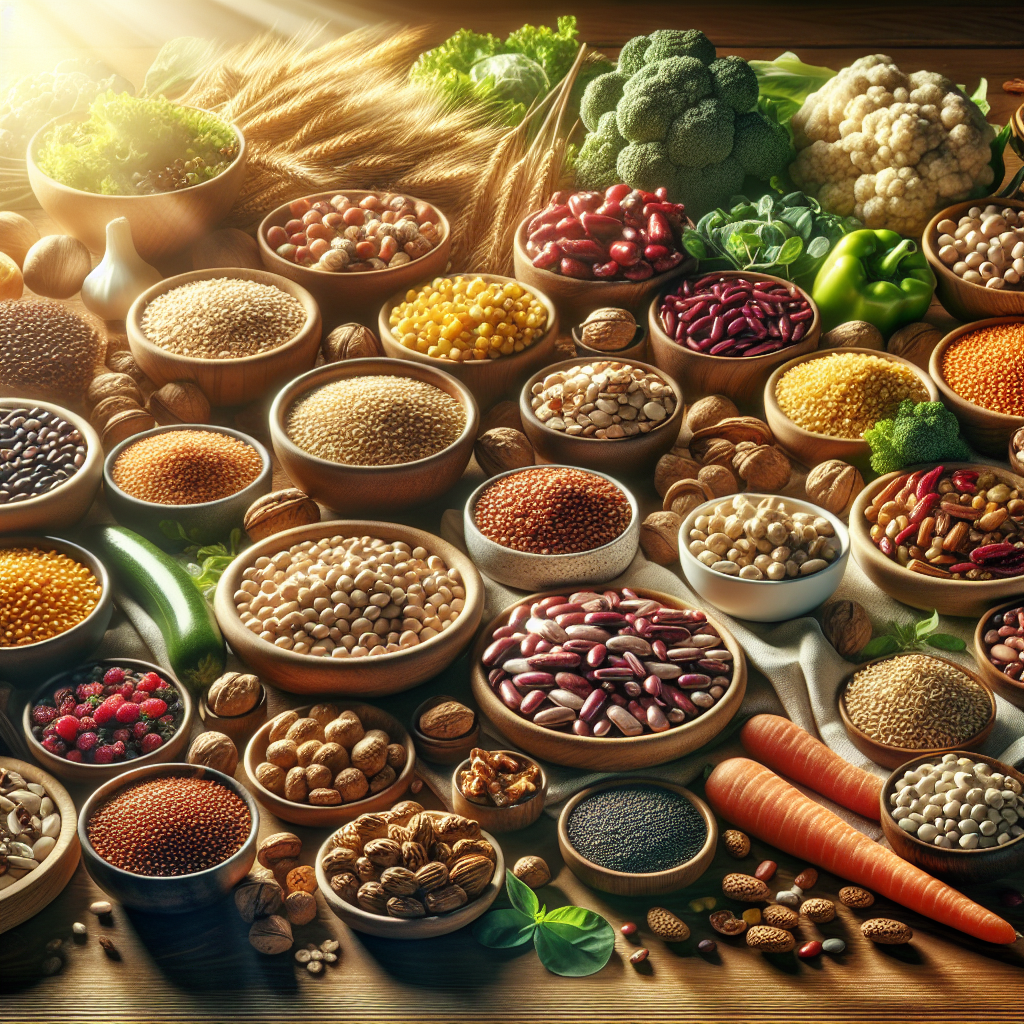Plant-based diets are gaining momentum as a sustainable and healthy eating approach. This comprehensive guide explores the nutritional aspects, environmental impact, and practical tips for adopting a plant-based lifestyle. Learn how to ensure optimal nutrition while reducing your environmental footprint.

The rise of plant-based eating represents more than just a dietary trend - it's a fundamental shift in how we think about nutrition, environmental sustainability, and personal health. Whether you're considering a complete transition to a plant-based diet or simply wanting to incorporate more plant-based meals into your routine, understanding the fundamentals is crucial for success.
Understanding Plant-Based Nutrition
A well-planned plant-based diet can provide all the nutrients your body needs while offering unique health benefits. Plant foods are rich in fiber, antioxidants, vitamins, minerals, and beneficial plant compounds called phytochemicals. These components work synergistically to support optimal health and protect against various chronic diseases.
Protein is often the first concern when considering plant-based eating. However, numerous plant sources provide high-quality protein, including legumes, nuts, seeds, whole grains, and even many vegetables. The key is combining different protein sources throughout the day to ensure you're getting all essential amino acids.
Essential Nutrients on a Plant-Based Diet
Certain nutrients require special attention when following a plant-based diet. Vitamin B12, traditionally obtained from animal products, needs to be supplemented or consumed through fortified foods. Iron from plant sources (non-heme iron) is less readily absorbed than iron from animal sources, but consumption with vitamin C-rich foods can enhance absorption.
Omega-3 fatty acids, particularly EPA and DHA, are another consideration. While plant sources like flaxseeds and walnuts provide ALA (which converts to EPA and DHA), conversion rates vary among individuals. Some people may benefit from algae-based supplements to ensure adequate levels.
Planning a Balanced Plant-Based Diet
A balanced plant-based diet should include a variety of foods from all plant food groups. Whole grains provide energy and B vitamins; legumes offer protein and iron; nuts and seeds contribute healthy fats and minerals; fruits and vegetables deliver vitamins, minerals, and antioxidants.
Meal planning becomes easier when you think in terms of food groups rather than trying to replace meat in every dish. Focus on building meals around whole plant foods rather than relying heavily on processed meat alternatives. While these products can be convenient, they shouldn't form the foundation of your diet.
Environmental Impact of Plant-Based Eating
The environmental benefits of plant-based diets are well-documented. Plant-based food production generally requires less water, generates fewer greenhouse gas emissions, and uses less land compared to animal agriculture. By choosing plant-based meals, you can significantly reduce your environmental footprint.
Sustainable food choices extend beyond just choosing plant-based options. Consider selecting seasonal, locally grown produce when possible, and be mindful of food packaging and waste. These choices compound the environmental benefits of plant-based eating.
Transitioning to Plant-Based Eating
Transitioning to a more plant-based diet doesn't have to happen overnight. Many people find success with a gradual approach, starting with one or two plant-based meals per week and slowly increasing from there. This allows time to learn new recipes, adjust to different flavors, and discover preferred protein sources.
Experiment with different cuisines that traditionally feature plant-based dishes. Many Asian, African, and Mediterranean cultures have developed delicious plant-based recipes over centuries. These tried-and-true combinations often provide balanced nutrition and satisfying flavors.
Practical Tips for Success
Keep your pantry stocked with plant-based staples like whole grains, legumes, nuts, and seeds. Having these ingredients on hand makes it easier to prepare balanced meals. Learn to batch cook basics like grains and legumes to streamline meal preparation during busy weeks.
Invest time in learning new cooking techniques and recipes. Plant-based cooking often involves different methods than traditional meat-based cooking. Understanding how to properly prepare legumes, create flavorful sauces, and build satisfying meals will make the transition more enjoyable.
Navigating Social Situations
Eating plant-based can present challenges in social situations. Communication is key - let hosts know about your dietary preferences in advance, and offer to bring a dish to share. Many restaurants now offer plant-based options, but it's helpful to check menus in advance when dining out.
Sports and Athletic Performance
Contrary to common misconceptions, plant-based diets can support athletic performance at all levels. Many professional athletes thrive on plant-based diets. The key is ensuring adequate calories and paying attention to protein, iron, and other nutrients important for athletic performance.
Conclusion
Adopting a plant-based diet represents an opportunity to improve both personal health and environmental sustainability. Success lies in understanding nutritional needs, planning balanced meals, and making gradual, sustainable changes. Whether you choose to go fully plant-based or simply increase your consumption of plant foods, every step towards more plant-based eating can benefit both your health and the planet. Remember that perfection isn't the goal - focus on progress and finding an approach that works for your lifestyle and preferences.



